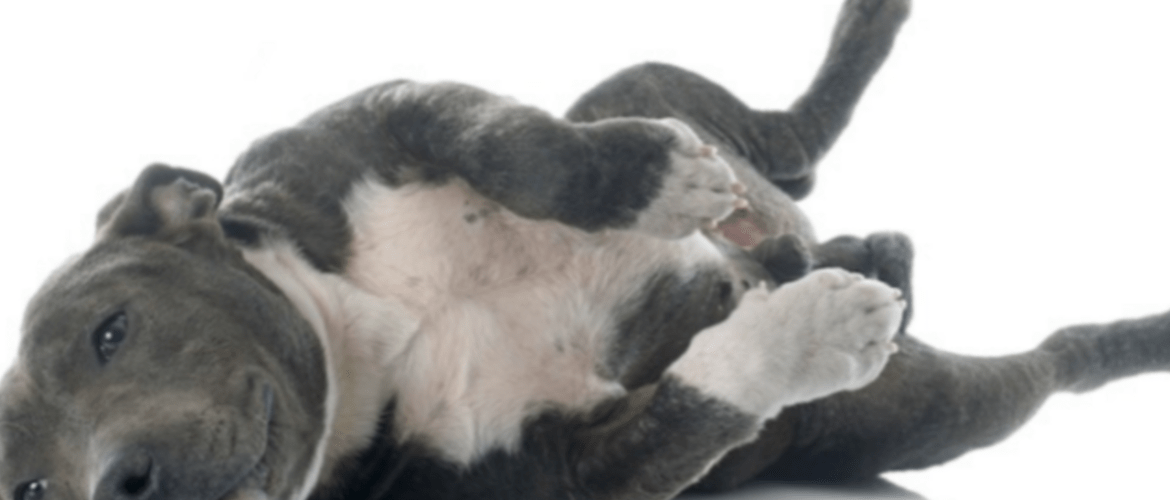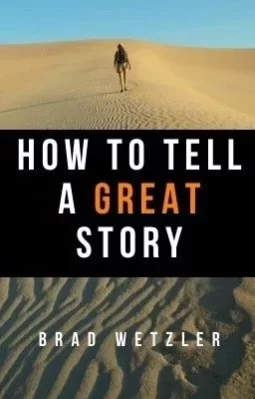Blog
What My Dying Dog Taught Me about Loneliness and Love
- June 8, 2020
- Posted by: Brad Wetzler
- Category: Uncategorized

The morning after my dog Blue died, I woke before dawn, reached into the dark for my phone, and turned it over to a text from a friend: I’m so sorry, Brad. My heart aches for you.
?
A tear rolled down my cheek, but I didn’t want to wake Kristen. I leaned over, kissed her on the forehead, and crawled out of bed. I put on pants and a sweatshirt. I went downstairs and sat on the couch.
?
The memories of Blue’s death-the violent vomiting, the scared look in his eyes, the surreal drive to the emergency vet, and my last tearful half-hour with the dog of my dreams-all felt too fresh, too raw, for my foggy, pre-coffee state of mind.
?
Of course, I had been aware that Blue was aging, but I was certain I would have six months, or more, with him. If only there could have always been six more months with him. His death coming so suddenly wasn’t even a possibility in my mind. Worse, I couldn’t keep myself from wondering that morning if his death was somehow my fault. I knew in my bones it wasn’t, but my mind was churning: could I have done something differently? Would he still be alive if I had? He had been getting into the trash in recent weeks. Had I forgotten to hide the trash in the bathroom the day before he died? Had he eaten something there that blocked his intestines? Or, as the vet had said, did he perhaps have cancer which had simply reached a critical point last night? I was starting to cruelly incriminate myself when my self-flagellation was interrupted by a soft hand on my head.
?
Kristen had come downstairs to wrap her arms around me. I cried a little.
?
I cried for Blue. I cried at the thought that I had not protected him well enough. I also cried for so much more.
?
My privilege is real. As a tall, relatively attractive, white male, no one who encountered me would ever guess that I’ve struggled with loneliness. Loneliness was with me as a child as I watched my father drink himself into a coma each night. Loneliness was with me as a teen when I became confused by bouts of depression.
?
Loneliness was there in my twenties. Loneliness followed me as a young journalist and travel writer crisscrossing the world on assignment for The New York Times, Outside, and other major magazines. At times, I walked around in a daze, wondering about why I felt lonely when I had the life of my dreams. Loneliness lived in my marriages. At times, loneliness felt like a knapsack full of rocks. The heaviest stone of all was the core message I and many people in dysfunctional or alcoholic families received as a child: not only were my feelings not important or interesting, there were not even real. There were times in my younger years when I felt tempted to walk into a river with that knapsack full of loneliness and sink to the bottom.
?
But I didn’t. As dark as some of those days were, I was always blessed, or cursed, with hope. Somewhere inside me, a feeling of sunshine glowed just behind the clouds. Yet, the hope wasn’t enough. The complex trauma that caused the loneliness was too thick, too real. For years I leaned on gurus, on travel, on therapists and psychiatrists, on pills, on anybody who would help me feel connected.
?
This probably sounds silly, but when Blue entered my life I experienced something new: infinite love. Love with a capital “L.”It is a scientific fact that dogs’ limbic systems are aligned with ours-they are wired to make us feel seen and loved. Yes, I do speak of Blue like he was the love of my life. The love-dog of my life. I am OK with the ridiculousness of that because I simply can’t deny the power of the love Blue gave me. Just as Blue gave me life-staying with me through pneumonia and walking through Boulder every morning, spreading his love to all he sniffed-I gave him life too. I adopted him, fed him, kept him from eating trash (usually), and rubbed his belly. It was a state of symbiotic unconditionality.
?
Blue, of course, did not keep me from hoping against hope that my family would change, that the adverse effects that my father’s alcohol abuse had our our family system would fade. That I could strip myself of my role as the family scapegoat, and that I could, for the first time, feel a part of a family.I fantasized about going home to see my father and brother and feeling accepted and loved for who I was. But long after my father reduced his drinking, the family dynamic was hardened like volcanic rock. I was destined to feel like a stranger in my own home, shut out by tumblers of gin,denial, perfectionism, inter-sibling competition, and my own confusion about what a family and love even meant.Today, my brother and father don’t seem aware that they, like all of us, have waking up to do. I know now that the toxicity is generations old. I am working on releasing their karma back into a divine plan that I, thankfully, don’t have to be in charge of. I have my own excavation project to attend to: bringing my shadow into the light, upturning my unconscious patterns into conscious mind, practicing therapy, yoga, and meditation. And above all, waking up to love-for myself and for others.
?
Kristen released her hug and went into the kitchen to make coffee. I stared at the blanket on the floor where Blue had been, just last night.
?
It was when Blue began to shiver that I knew it was over. I knew, but I scooped him up and carried him in my arms to the car. Kristen scraped the windshield off while I sat in the passenger seat, cradling Blue in my lap. We drove through two feet of snow to the vet. I knew they couldn’t do anything for him, but I couldn’t do anything but try to save him.
?
I knew he wanted to go, but I couldn’t abandon him. Blue had been abandoned so many, many times before. I had abandoned myself so many, many times before. Saving him and saving myself had become an undifferentiated urgency. Blue never abandoned me. He was always there when I needed him. Always.
?
For fifteen minutes Blue lay on the floor of the vet’s office. His heart was barely pumping and he couldn’t keep his eyes open. I was terrified. Tears flowed. When he opened his eyes, we looked into each others’. Then his eyes would close for ten or fifteen seconds.
?
I decided I had to pull myself together. Yes, I’d been through intense loneliness, profound grief, and existential suffering. Yet, that was not the end of my story. In that moment, I felt my community around me. The vet was kind. My girlfriend was there. I felt the love that Blue and so many others have given me and knew I was capable of giving it back. It was time to be there for Blue, one last time.
Blue was still breathing. His belly was warm under my hand. I felt his skin with my fingers, the buckshot embedded in his side. The little scars from his days as a bait dog. His broken teeth were revealed in his pained grimace. I never found out much about Blue’s past, but our visits to the vet over the years always provided me with new clues.
Shortly after Blue’s adoption, I had to have his canine teeth removed.
“His teeth are most likely rotten from spending years chewing on a metal chain or cage,” the vet mused.
A year later Blue ran away from my apartment and was hit by a truck driver that left him for dead. Blue spent the night out in the cold. The vet who saw him after that pointed out that Blue had little scars all over his body-he had been a bait dog. Bait dogs are passive pit bulls who don’t have the fight in them. Dogfighters throw bait dogs into the ring and the fight dogs attack them. It fires up the fight dogs.
Then, when Blue was attacked by a pitbull-mastiff a few Thanksgivings ago and was nearly killed, the x-ray showed that Blue’s side was riddled with buckshot. He’d been shot by a shotgun. Oh, there were other ailments, too. One Thanksgiving, his eye swelled up. The vet recognized that Blue had eye worms. The vet reasoned that he’d been bitten by a black fly before I had adopted him and the fly had laid eggs. The vet cut his eye open and hundreds of worms crawled out of it.
Blue had been through the wringer. He was a survivor. But it was clear to me on the vet’s floor that Blue didn’t want to fight anymore. He wanted to go. And I needed to be there for Blue, just as he had been there for me. I could do that for him.
“OK, buddy. It’s time. You can go now. I’m okay. You are going to be okay. It’s time to leave, if you feel ready. It’s time for your soul to reenter the universe. Thank you, Buddy. For everything. I’m here. I’ve got you. You can do this, Blue. You can go now.”
Blue blinked and opened his eyes again. Then he did something remarkable, something I’ll never forget, and something that didn’t surprise me in the least: he opened his eyes, lifted his neck off the floor, and, leading with his thick snout, he lunged at my face-as he’d done a thousand times-and his wet tongue met my salty cheek. Blue licked my face.
Blue showed me that Love, real Love, with a capital “L,” is always accessible to me. I am okay. Blue’s death doesn’t, couldn’t, change that because his life gave me something that can never be lost, or denied, or taken away.
Blue, I loved you. I love you. I will always love you. Thank you, love dog.
Then he set his snout on his little paws and closed his eyes for the final time.
? ? ? ? ? ? ?
— — — — —
A former senior editor and contributing writer at Outside magazine, Brad Wetzler is an author, journalist, travel writer, book writing coach, and yoga instructor. His book, Real Mosquitoes Don’t Eat Meat, was published by W.W. Norton. His nonfiction writing has appeared in The New York Times Magazine and Book Review, GQ, Wired, Men’s Journal, National Geographic, George, Travel + Leisure, Thrive Global, and Outside. He coaches up-and-coming authors to write and successfully publish their books.

